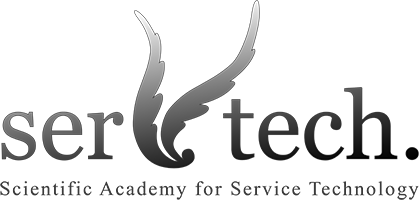About
ICSOC, the International Conference on Service-Oriented Computing, is the premier international forum for academics, industry researchers, developers, and practitioners to report and share groundbreaking work in service-oriented computing. ICSOC fosters cross-community scientific excellence by gathering experts from various disciplines, such as services science, data science, management science, business-process management, distributed systems, wireless and mobile computing, cloud and edge computing, cyber-physical systems, Internet-of-Things (IoT), scientific workflows, artificial intelligence, machine learning, and services and software engineering.
ICSOC provides a high-quality forum for presenting results and discussing ideas that further our knowledge and understanding of the various aspects (e.g. application and system aspects) related to Service Computing with particular focus on artificial intelligence, machine learning, big data analytics, IoT, and emerging technologies including quantum computing.
ICSOC 2022, the 20th event in this series, will take place in Sevilla, Spain from November 29 – December 2, 2022. Following on the ICSOC tradition, it will feature visionary keynote presentations, research and industry presentations, a vision track, workshops, tutorials, and a PhD track. We invite interested researchers, students, practitioners, and professionals to submit their original research contributions to ICSOC 2022.
Last Updates
- [14/11/2022] – Social program available
- [01/11/2022] – Distinguished Papers Selected
- [01/11/2022] – Scientific Program Published
- [19/10/2022] – Accepted Papers
- [04/10/2022] – Accepted Tutorials
- [04/10/2022] – Accepted Workshops
- [12/08/2022] – Published Call for Tutorials
- [11/08/2022] – Accommodation Options
- [10/08/2022] – Confirmed Conference Venue
- [05/08/2022] – Keynote Juan Manuel Murillo
- [05/08/2022] – Keynote Ernesto Damiani
- [05/08/2022] – Published Call for PhD
- [20/07/2022] – Published Call for Demos
- [19/05/2022] – Published Call for Workshops
- [21/02/2022] – Published Call for Papers
Past Conferences
- ICSOC 2021, Online
- ICSOC 2020, Dubai, United Arab Emirates
- ICSOC 2019, Toulouse, France
- ICSOC 2018, Hangzhou, Zhejiang, China
- ICSOC 2017, Málaga, Spain
- ICSOC 2016, Banff, Alberta, Canada
- ICSOC 2015, Goa, India
- ICSOC 2014, Paris, France
- ICSOC 2013, Berlin, Germany
- ICSOC 2012, Shanghai, China
- ICSOC 2011, Paphos, Cyprus
- ICSOC 2010, San Francisco, California
- ICSOC 2009, Stockholm, Sweden
- ICSOC 2008, Sydney, Australia
- ICSOC 2007, Vienna, Austria
- ICSOC 2006, Chicago, USA
- ICSOC 2005, Amsterdam, Netherlands
- ICSOC 2004, New York, USA
- ICSOC 2003, Trento, Italy
The 20th International Conference on
Service-Oriented Computing
November 29th – December 2nd, 2022. Sevilla, Spain
Important Dates
Event Deadline
Early paper submissions due May 5th, 2022
Review comments to authors of early submission papers May 26th, 2022 June 6th, 2022
Normal paper submission due June 30th, 2022 July 7th, 2022 (extended and final)
Final notification to authors August 25th, 2022 September 1st, 2022
Camera ready manuscripts due September 22nd, 2022
Author registration September 22nd, 2022
Conference dates November 29th – December 2nd, 2022
Sponsors

Silver Sponsors
Best Paper Award Sponsored by
Supported by










